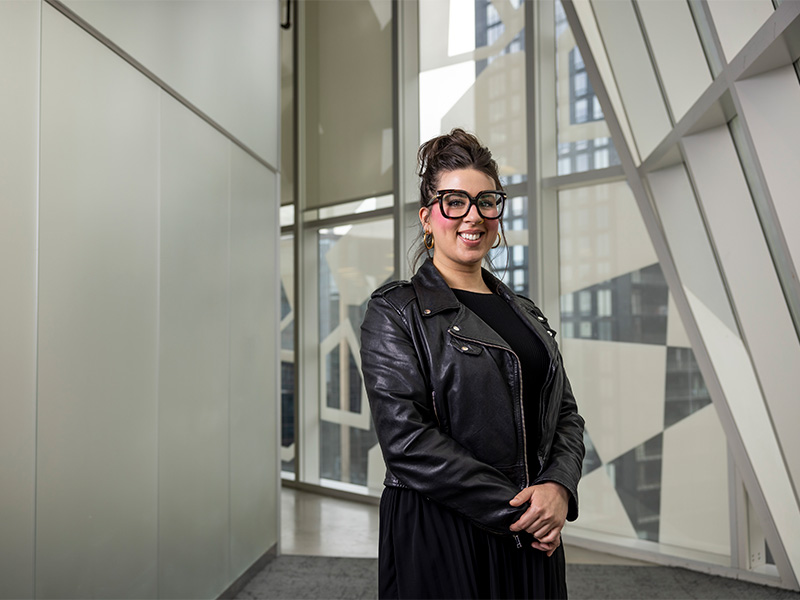Vying for the right to die

Dr. Margot Challborn is examining the differences between medical assistance in dying (MAID) and suicide in the context of mental illness. Currently, these are treated as different experiences in Canada; however, the Ethel Louise Armstrong Postdoctoral Fellow’s research is finding they are not as different as they seem.
“This matters because it affects the way we develop legislation, how we create social policy, where we invest our funding and how we think and talk about people who die either by suicide or by MAID,” says Dr. Challborn.
Photo: Jesse Milns
What inspires your research?
Legislation impacts all of us, and especially legislation that determines how and when people can choose to die. That impacts caregivers and medical providers, but it also impacts clinicians and those in our communities who may be considering that choice.
So it isn't just about people who are applying for MAID, but it's also about how we as community members think about our ethical and relational responsibilities to those around us who are most in need of our support and those made marginal along lines of race, ability, class, gender and sexuality.
How has your TMU experience been?
My postdoctoral fellowship at TMU has been one of the most inspiring and energizing experiences of my academic career.
TMU offers a lot. It’s a really exciting place for research and collaboration and to flourish as a scholar. It’s also located in a city that offers really exciting opportunities to connect with community and scholars working at other institutions.
"My postdoctoral fellowship at TMU has been one of the most inspiring and energizing experiences of my academic career."
How is TMU preparing you to be career-ready?
TMU is integral in helping me feel prepared for a career in academia. I'm building strong professional relationships. I am attending workshops that are supporting me and developing the competencies I need to be an academic, and I am deepening my research program.
What advice do you have for graduate students?
Know that you have a home here. I'm a scholar who comes from an unorthodox family background. I'm a racialized woman and a queer woman and I'm mad-identified. And here I am as a PhD and a postdoctoral fellow. So my advice would be that you belong.